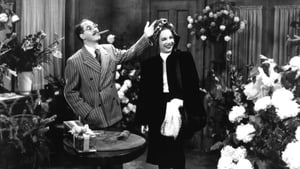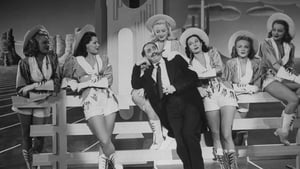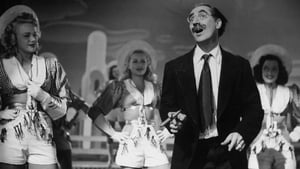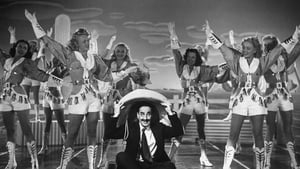Video Sources 0 Views
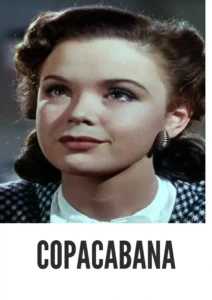
Synopsis

Step into the vibrant world of Copacabana, a delightful musical comedy from 1947 that has been beautifully colorized for an enhanced viewing experience. This film, featuring the legendary Groucho Marx, showcases a blend of humor, music, and dazzling performances that will captivate audiences of all ages. With its lively songs and engaging storyline, this HD download offers a fresh take on a classic that celebrates the glitz and glamour of the era.
Copacabana tells the story of a bumbling nightclub owner, played by Groucho Marx, who finds himself in a series of comedic misadventures as he tries to save his club from a rival establishment. The plot thickens when he gets caught up in a scheme involving a beautiful singer, played by Carmen Miranda, and a group of eccentric characters. As they navigate through misunderstandings and hilarious situations, the film delivers an entertaining mix of romance, comedy, and musical numbers that keep viewers engaged from start to finish.The film’s climax features a spectacular performance at the Copacabana nightclub, where Groucho’s character must outwit his rivals to ensure the success of his establishment. This culminates in a series of lively musical numbers that showcase both Groucho’s comedic timing and Carmen’s captivating stage presence.
The film features an impressive cast that brings this charming story to life:
- Groucho Marx as himself
- Carmen Miranda as Lola
- Eve Arden as Mrs. Cummings
- Louis Armstrong as himself
- Johnnie Ray as Johnny
Copacabana falls into the genre of musical comedy, blending elements of romance and farce that are characteristic of Groucho Marx’s unique style. Its catchy tunes and humorous dialogue make it an enjoyable watch for fans of classic cinema.
Released in 1947, Copacabana reflects the vibrant atmosphere of post-war America when musicals were at their peak. The film captures the essence of the era with its lively performances and colorful set designs. It also marks a significant moment in Groucho Marx’s career as he transitioned from his successful work with the Marx Brothers to solo projects. While Copacabana may not be as widely recognized as some other musicals from this period, it remains a beloved classic that showcases the talents of its stars.
This colorized version of Copacabana has been meticulously restored using advanced digital techniques to enhance its visual appeal while preserving the film’s original charm. The colorization process involved analyzing the grayscale tones of the original black-and-white footage and applying appropriate colors to each scene. This careful approach breathes new life into the film’s characters and settings, making it more accessible to contemporary audiences. While opinions on colorization may vary, this version allows new generations to appreciate the artistry and entertainment value of classic films.
- : Alfred E. Green
- : Walter Bullock
- : John Alton
- : William H. Ziegler
- : RKO Radio Pictures
- : RKO Radio Pictures
- : 91 minutes
- : MP4
- : HD (1080p)
- : Compatible with most devices, including smartphones, tablets, computers, and smart TVs.
While Copacabana (1947) may not have reached the iconic status of some other musicals from its time, it is celebrated for its humor and memorable performances by Groucho Marx and Carmen Miranda. The film is often appreciated for its light-heartedness and catchy musical numbers that continue to entertain audiences today. As a delightful example of mid-century musical comedy, Copacabana remains a charming piece for fans of classic cinema.
- : What is Copacabana about?
- A: Copacabana is a musical comedy about a nightclub owner who faces comedic challenges while trying to save his club from rivals.
- : Is Copacabana (1947) well-known?
- A: While it may not be as famous as other musicals, it is cherished for its humor and performances by Groucho Marx and Carmen Miranda.
- : Is this version colorized?
- A: Yes, this version has been professionally colorized to enhance your viewing experience.
- : What makes Copacabana interesting for fans?
- A: It showcases Groucho Marx’s comedic talent alongside Carmen Miranda’s vibrant performances in a classic musical setting.
- : What is the download format?
- A: The download format is MP4, compatible with most devices.
- : What resolution is available for download?
- A: The resolution is HD (1080p), ensuring high-quality viewing enjoyment.
Watch Copacabana Today!
